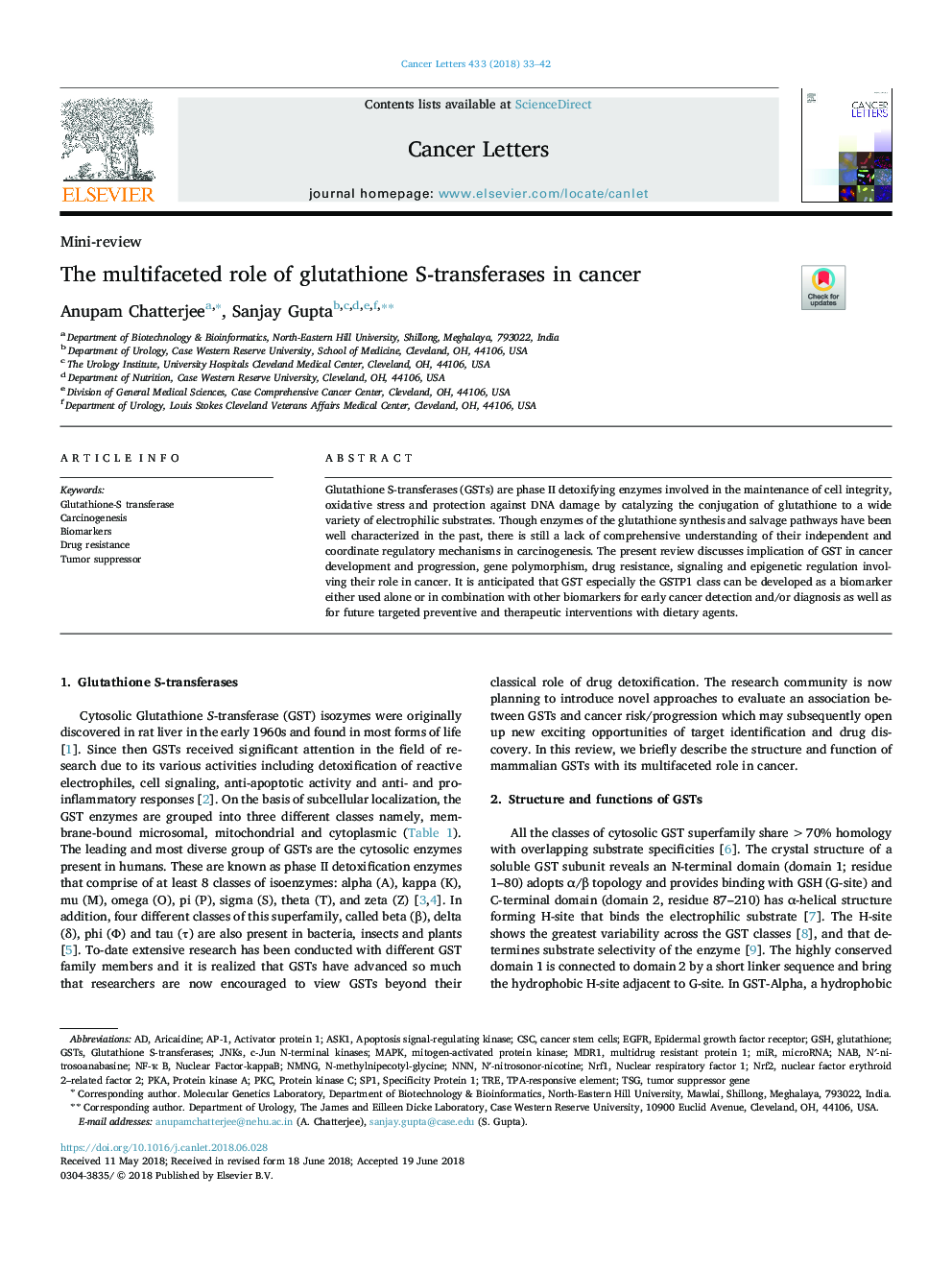| Article ID | Journal | Published Year | Pages | File Type |
|---|---|---|---|---|
| 8434121 | Cancer Letters | 2018 | 10 Pages |
Abstract
Glutathione S-transferases (GSTs) are phase II detoxifying enzymes involved in the maintenance of cell integrity, oxidative stress and protection against DNA damage by catalyzing the conjugation of glutathione to a wide variety of electrophilic substrates. Though enzymes of the glutathione synthesis and salvage pathways have been well characterized in the past, there is still a lack of comprehensive understanding of their independent and coordinate regulatory mechanisms in carcinogenesis. The present review discusses implication of GST in cancer development and progression, gene polymorphism, drug resistance, signaling and epigenetic regulation involving their role in cancer. It is anticipated that GST especially the GSTP1 class can be developed as a biomarker either used alone or in combination with other biomarkers for early cancer detection and/or diagnosis as well as for future targeted preventive and therapeutic interventions with dietary agents.
Keywords
EGFRN′-nitrosoanabasineTPA-responsive elementJNKsNNNTSGNaBMDR1ASK1GSTsNRF1PKCAP-1pKaNrf2MIRGSHCSCc-Jun N-terminal kinasesMAPKSp1CarcinogenesisTumor suppressorCancer stem cellsTRENuclear respiratory factor 1Nuclear factor erythroid 2–related factor 2nuclear factor-kappaBSpecificity protein 1Drug resistanceMicroRNABiomarkersactivator protein 1protein kinase AProtein kinase Cmitogen-activated protein kinaseTumor suppressor geneapoptosis signal-regulating kinaseGlutathioneglutathione S-transferasesGlutathione-S transferaseEpidermal growth factor receptor
Related Topics
Life Sciences
Biochemistry, Genetics and Molecular Biology
Cancer Research
Authors
Anupam Chatterjee, Sanjay Gupta,
